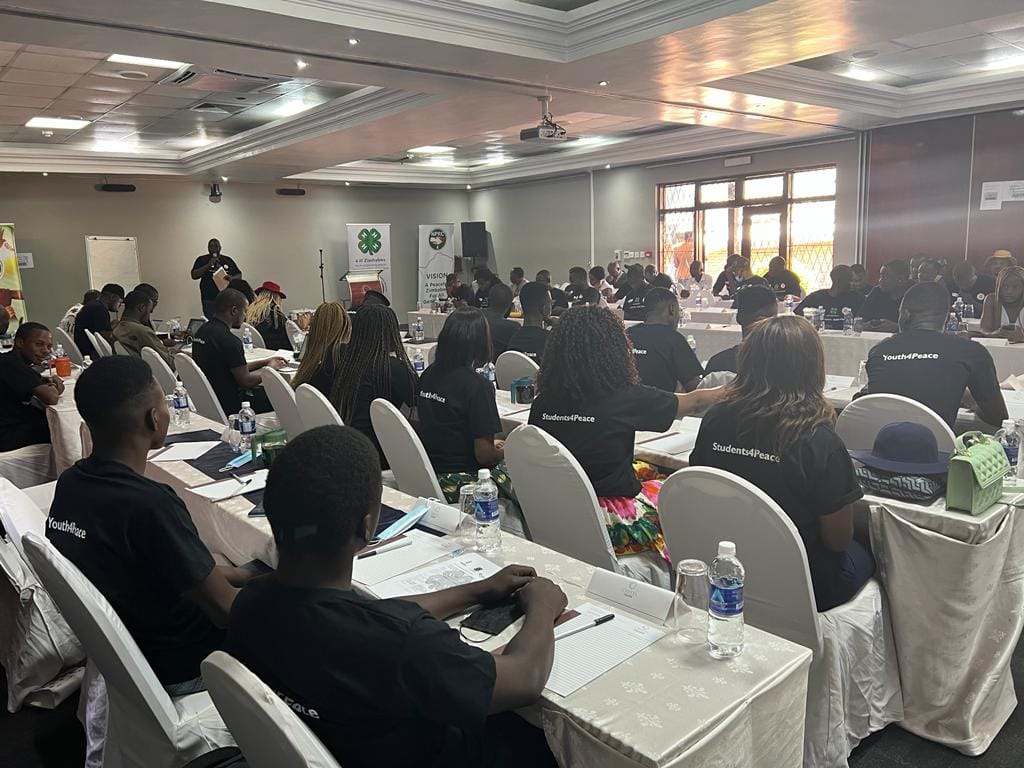YEARS of political polarisation in the country which also spilled into tertiary institutions where students through their SRC representatives have been divided on political lines might soon come to an end if the noble initiative by a local non-governmental organisation, 4 H Zimbabwe bears fruit.
This weekend the organisation hosted student leaders from various tertiary institutions in the country in Bulawayo as part of the International Peace Day commemorations.
Speaking at the event, student leaders from rival unions, the Zimbabwe Congress of Students Union (ZICOSU) which is aligned with the ruling party and the Zimbabwe National Students Union (Zinasu) aligned with the opposition painted a positive future following the engagement.
This comes at a time, political parties have been accused of using universities as their political playing fields resulting in toxic divisions among the students.
Tapfuma Muganiwa, NUST SRC president under Zicosu, admitted the existence of the rivalry.
“The relationship between Zinasu and Zicosu at some point gets sour, but it gets rife usually towards SRC elections, usually that’s when there is propaganda that will be propelled from both ends,” said Muganiwa.
“We don’t agree on ideological perspectives, we also don’t agree in terms of how to handle issues like fees hikes. I am also talking about the approach to lead. From Zicosu’s side, we first consider being diplomatic before we can talk about demonstration, negotiation is our first pot of call. But from Zinasu there is an inclination towards demonstration, so sometimes because of those differences we can then not agree on how to handle issues like fees hikes,” he said.
He, however, said there was hope for a possible unity in the future.
“However, continued discussion with people of different views or ideologies, will bring students together and one nation in the future. We can’t solve those differences at one go but I really think 4 H Zimbabwe is one of the greatest innovations towards peacebuilding in the country,” Muganiwa said.
Benon Ncube, the Zinasu president said unity between the main rival unions was possible and achievable.
“SRC elections between Zinasu and Zicosu come once in a while and I tell you will never hear of these students fighting in between. It’s a matter of making sure that what they have been doing before elections is what they should do even during elections. Before elections, they will be dining together, studying together and even partying together.
“So, on the same day you are having elections, you are still the same person regardless of the call that you got from the political party you support. So it is possible, it’s just a matter of encouraging fellow union associates that what was happening before, should happen today on the day of the election because we are one and it should remain like that,” Ncube said.
Meanwhile, as 4 H Zimbabwe moves to cement its footprints and usher a new era in the country’s student unionism, a National Students Council which seeks to bring all students together was officially launched in Bulawayo.
The students’ council representative Bruce Moyo said it was their mission to put an end to political polarisation among students.
“Our fundamental purpose is to eradicate and address divisions among students. We have understood and come to a realization that as students in Zimbabwe we have common challenges and goals, so there is no need to deny it ourselves when it comes to the approach in addressing our common goals. Regardless of our political affiliation and unionism in terms of Zocosu and Zinasu,” Moyo said.
He added: “So this initiative is formulated to address such divisions among ourselves. Yes, Zinasu and Zicosu must exist, this is good and advisable for opinions to differ and that’s politics. Our main goal is that people should debate, not in terms of personalities but in terms of ideas and facts.”
4 H Zimbabwe national director John Muchenje said it was their aim to promote peacebuilding and tolerance in all the country’s tertiary institutions.
“We are pushing and promoting peacebuilding and tolerance in all universities. Political parties have identified universities as their rich hunting ground for their political ambitions. So what we are doing is to nurture these students from a tender age, before they go into mainstream politics. We need them to practice active student activism,” he said
“We have come up with the National Students Council, which is a council for students leaders not political parties and then the things that they should discussing there should be coming from students, for example the fees must fall hashtag, should come from students in a coordinated manner where SRC leaders will be raising issues that are tangible. That committee will then engage their authorities. We want students to be independent and separate student activism from mainstream politics. We want to encourage student activism in a positive and constructive manner,” Muchenje said.

